Inquiry / Contact
igus® inc.
| General features | Unit | iglide® A290 | Test method |
| Density | g/cm³ | 1,41 | |
| Color | White | ||
| Max. moisture absorption at 73° F / 50% R. H. | % weight | 1,7 | DIN 53495 |
| Max. moisture absorption | % weight | 7,3 | |
| Coefficient of surface friction, dynamic, against steel | µ | 0,13 - 0,40 | |
| p x v value, max. (dry) | psi x fpm | 6,600 | |
Mechanical properties | |||
| Modulus of elasticity | psi | 1,276,000 | DIN 53457 |
| Tensile strength at 68° F | psi | 36,260 | DIN 53452 |
| Compressive strength | psi | 13,200 | |
| Permissible static surface pressure (68° F) | psi | 10,150 | |
| Shore D hardness | 88 | DIN 53505 | |
Physical and thermal properties | |||
| Upper long-term application temperature | °F | 284 | |
| Upper short-term application temperature | °F | 356 | |
| Lower application temperature | °F | -40 | |
| Thermal conductivity | [W/m x K] | 0,24 | ASTM C 177 |
| Coefficient of thermal expansion (at 73°F) | [K-1 x 10-5 ] | 7 | DIN 53752 |
Electrical properties | |||
| Specific volume resistance | Ωcm | > 1011 | DIN IEC 93 |
| Surface resistance | Ω | > 1011 | DIN 53482 |
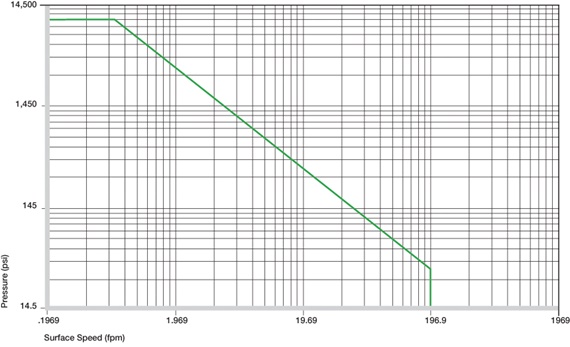
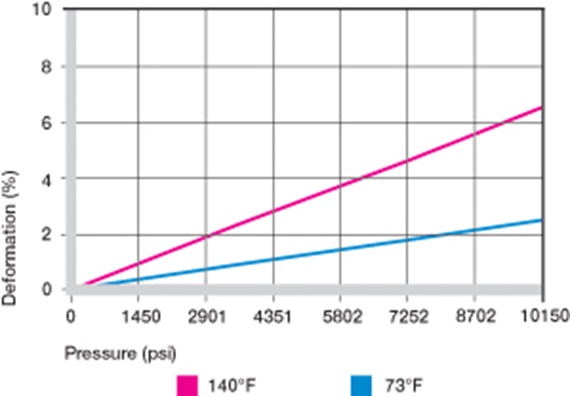
| fpm | Rotating | Oscillating | Linear |
| Continuous | 196 | 137 | 590 |
| Short-term | 393 | 275 | 787 |
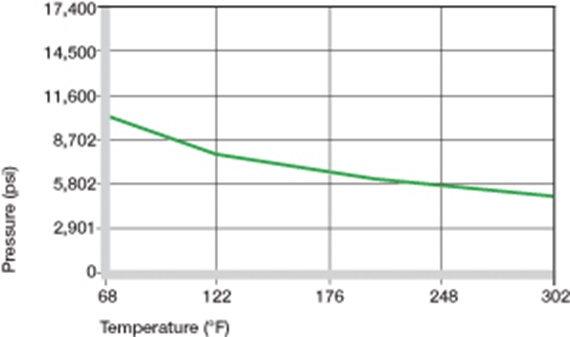
| iglide® A290 | Application temperature |
| Lower | - 40 °F |
| Upper, long-term | + 284 °F |
| Upper, short-term | + 356 °F |
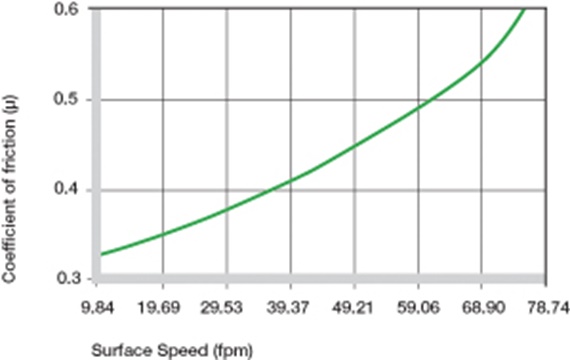
| iglide® A290 | Dry | Grease | Oil | Water |
| Coefficients of friction µ | 0,13 - 0,40 | 0,09 | 0,04 | 0,04 |
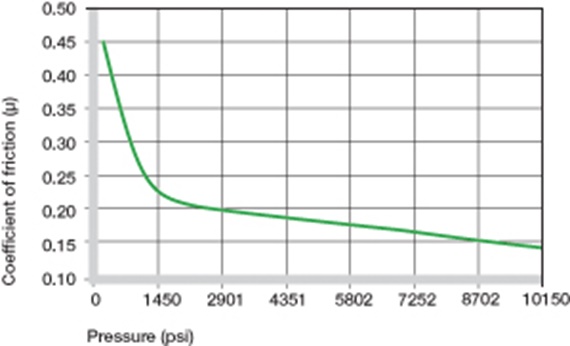
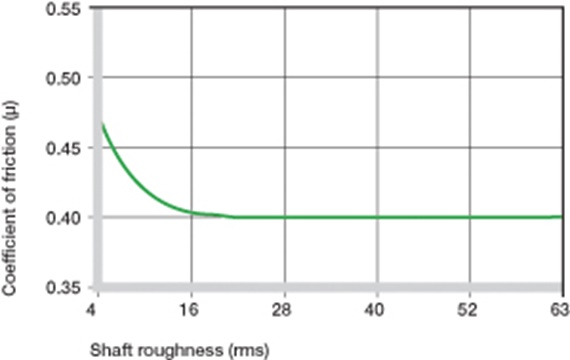
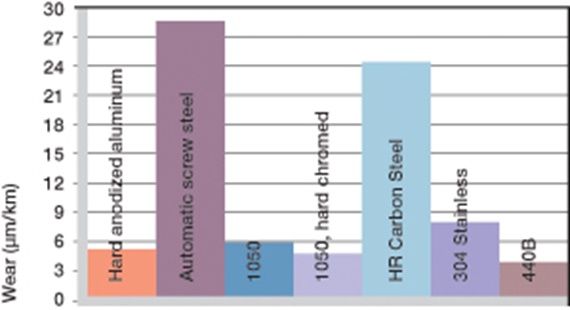
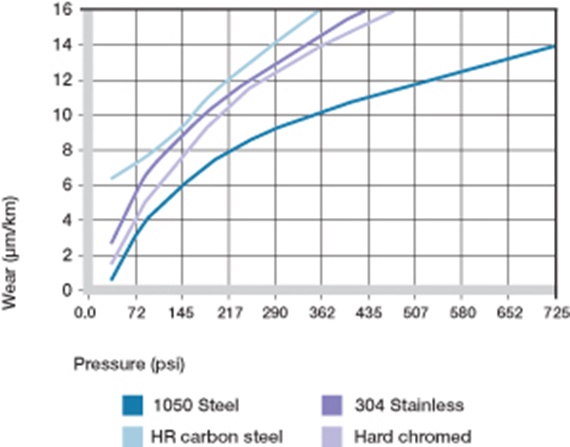
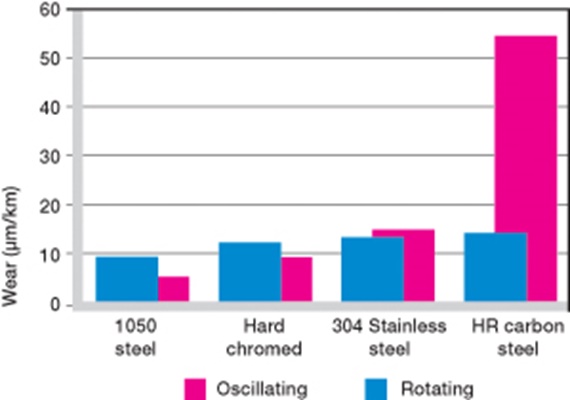
| Diameter d1 [mm] | Shaft h9 [mm] | iglide® A290 D11 [mm] |
| Up to 0.5 | 0 - 0,025 | +0,020 + 0,080 |
| > 3 to 6 | 0 - 0,030 | +0,030 + 0,105 |
| > 6 to 10 | 0 - 0,036 | +0,040 + 0,130 |
| > 10 to 18 | 0 - 0,043 | +0,050 + 0,160 |
| > 18 to 30 | 0 - 0,052 | +0,065 + 0,195 |
| > 30 to 50 | 0 - 0,062 | +0,080 + 0,240 |
| Medium | Resistance |
| Alcohol | + to 0 |
| Hydrocarbons, chlorinated | + |
| Greases, oils, without additives | + |
| Fuels | + |
| Weak acids | 0 to - |
| Strong acids | - |
| Weak alkaline | + |
| Strong alkaline | + to 0 |
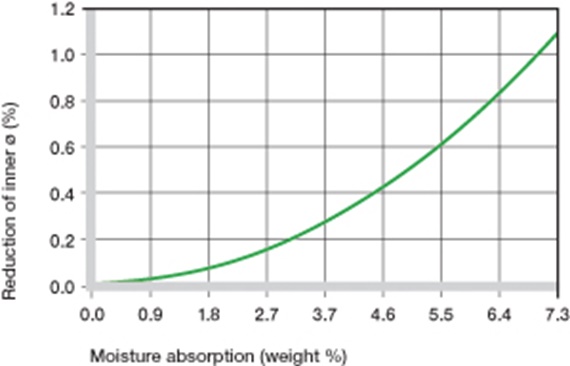
| Specific forward resistance | > 1011 Ωcm |
| Surface resistance | > 1011 Ω |